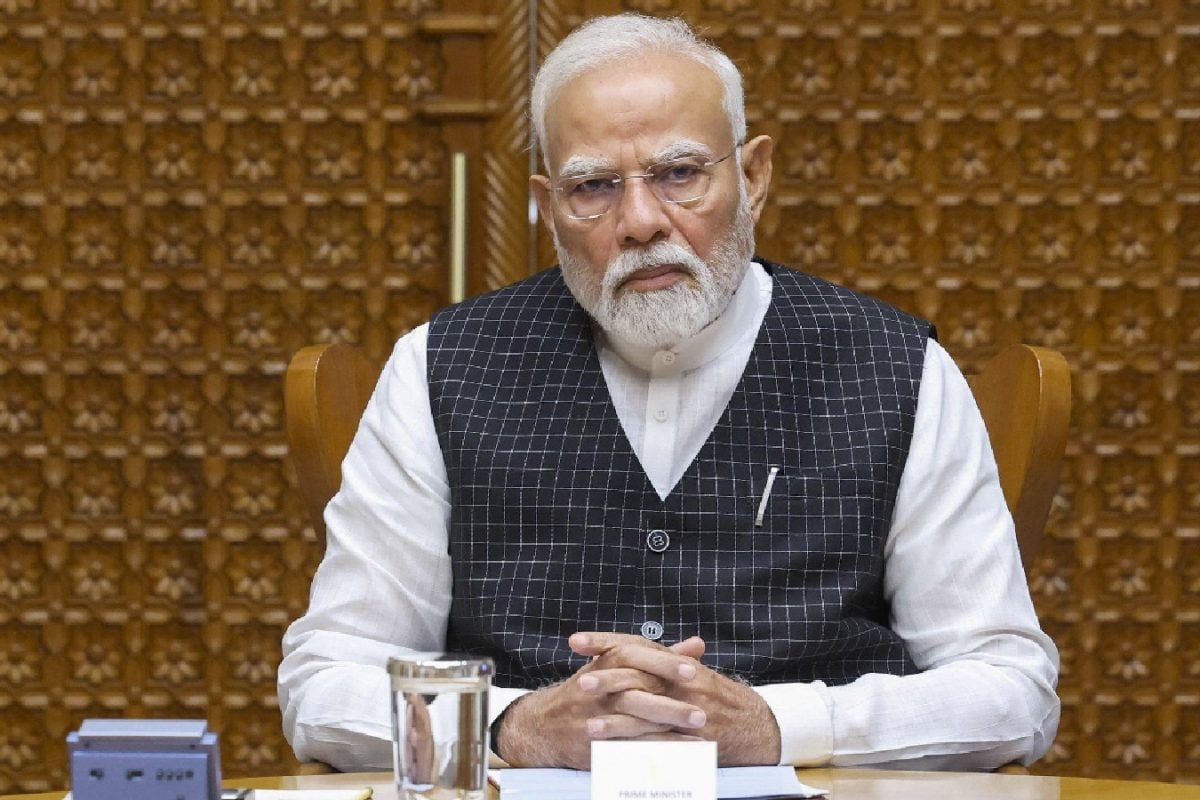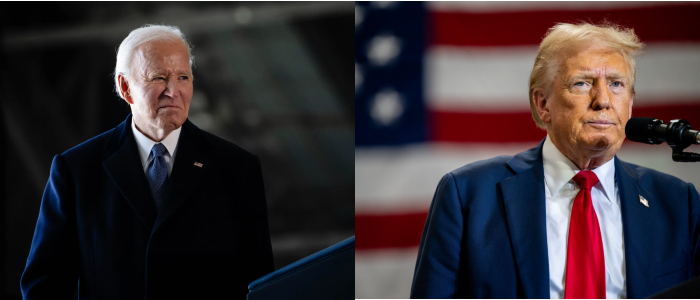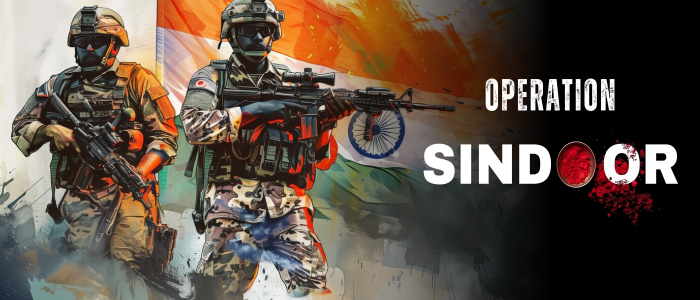PM Modi will avenge Pahalgam because deep down, he truly cares and ‘Nation First’ has always been his abiding work ethic The Narendra Modi government has implemented a multi-faceted approach to counter terrorism emanating from Pakistan, focussing on military, diplomatic, legislative and strategic measures. In terms of military offensives, following the Uri terror attack, which killed over 19 Indian soldiers, the Indian Army conducted surgical strikes on terror launch pads across the Line of Control (LoC) in Pakistan-occupied Kashmir (PoK). These strikes targeted terrorist infrastructure and were a significant shift from the previous policy of lethargy under the erstwhile Congress dispensation, signalling a proactive stance.
In response to the Pulwama attack, where over 40 CRPF personnel were killed, the Indian Air Force conducted airstrikes on a Jaish-e-Mohammed (JeM) camp in Balakot, Pakistan. This operation, deep inside Pakistani territory, dismantled terror infrastructure and demonstrated India’s ruthless willingness to escalate, if the need arose. The Modi government has also prioritised strengthening border infrastructure, including roads, tunnels and fencing, to prevent cross-border infiltration.

This includes a 10-fold reduction in cross-border infiltration between 2010 and 2023. The Modi administration has empowered security forces to neutralise threats decisively, adopting a “free hand" approach for operations against terrorists. This was evident post-Uri and Pulwama, with the government emphasising pre-emptive and retaliatory actions.
PM Modi’s zero tolerance for terror has played out brilliantly for India. Following the Pahalgam terror attack, which killed over 26 people, India suspended cooperation under the Indus Waters Treaty, signalling a strong diplomatic response to Pakistan’s alleged support for terrorism. This move was described by Pakistan as an “act of war", highlighting how the rogue State of Pakistan was completely stunned with Modi’s diplomatic offensive.
The Indus Waters Treaty (IWT), a key water-sharing agreement brokered in 1960, will be held in abeyance with immediate effect until Pakistan credibly and irrevocably abstains from supporting and perpetrating cross-border terrorism. Experts opine that Article 62 of the Vienna Convention on Law of the Treaties provides sufficient room under which the IWT treaty can be repudiated in view of the fundamental change of circumstances which has occurred with regard to those existing at the time of conclusion of the treaty. India, being an upper riparian country, even practically speaking, has huge leverage and advantage.
That it never used this lever is simply because it chose not to, but the Pahalgam terror attack has changed everything and now there is no going back. Pakistan’s terror proxies will be handed out “unimaginable punishment", to quote Modi. Last year, India sent a formal notice to Pakistan, seeking the “review and modification" of the treaty.
The integrated Attari-Wagah check post has also been closed with immediate effect. Pakistani nationals will not be permitted to travel to India under the Saarc visa exemption scheme. Any SPES visas issued in the past to Pakistani nationals are deemed cancelled.
Any Pakistani national currently in India under an SPES visa has 48 hours to leave India. India will be withdrawing its defence, navy and air advisors from the Indian High Commission in Islamabad. Similarly, the defence, military, naval and air advisors in the Pakistani High Commission in Delhi have been declared “persona non grata".
They have a week to leave India. The overall strength of the respective High Commissions will be brought down to 30 or lower from the earlier 55 or more. Also, as part of a strategic plan, IAF pilots in the last few days rehearsed high-intensity ground strike operations across diverse landscapes, including mountainous terrain.
The extensive drill also involved IAF’s Su-30MKI squadrons. The massive scale of the operation could be gauged by the fact that several assets of the IAF were moved from multiple airbases, including from the eastern side. The drills also involved extended-range sorties and precision bombing on distant targets, usually intended for deep-strike missions.
The whole exercise was closely monitored by senior IAF leadership. The IAF’s prowess was seen during the Balakot airstrikes in the aftermath of the Pulwama terror attack in 2019, where Mirage 2000 jets were deployed to flatten terror launchpads inside Pakistan. During the dogfight, the IAF even shot down a more advanced Pakistani F-16 jet.
Since then, the IAF has been bolstered by the addition of the Rafale, a 4.5 generation fighter aircraft. The S-400 air defence system, capable of neutralising aerial threats, is also there in India’s arsenal.
At the same time, the Navy’s guided-missile destroyer INS Surat successfully test-fired a medium-range surface-to-air missile in the Arabian sea. It came as Pakistan issued a NOTAM to conduct a surface-to-surface missile test in the Arabian sea. That the IAF deployed its top-of-the-line fighter jets, the Rafale, for the exercise, called “Aakraman" (attack) and it involved some of the force’s best “top guns" showed the magnitude and gravity of the drill.
Don’t forget, the Agni-V is India’s intercontinental ballistic missile (ICBM), designed and developed by DRDO. It has a range exceeding 5,000 km. The Agni-V can carry multiple warheads, deploying what is called as MIRV (Multiple Independently Targettable Re-entry Vehicle) technology.
Post-Pahalgam, India’s expulsion of Pakistani defence, military, naval, and air advisors from its High Commission in New Delhi, shows PM Modi is in no mood to forgive or forget. India has leveraged global platforms to highlight Pakistan’s role in sponsoring terrorism. The Modi government’s efforts contributed to Pakistan being grey-listed by the Financial Action Task Force (FATF) for terror financing, increasing economic pressure on Pakistan, so much so that the “mothership of terror" is in the throes of bankruptcy today, with even its erstwhile allies having abandoned it.
After the Pahalgam attack, India has garnered support from world leaders, including Italy’s Giorgia Meloni, Israel’s Benjamin Netanyahu, UK’s Keir Starmer, France’s Emmanuel Macron and most importantly, the Donald Trump administration in the US, thereby completely isolating Pakistan. Pakistan’s isolation internationally when its economy is on the verge of an embarrassing collapse, couldn’t have come at a worse time for this rogue nation. For India, that is great news by any yardstick, as having a terror State as a neighbour does no one any good and with the Pakistani economy in shambles, PM Modi has ensured that even without a full-fledged war, Pakistan stands demolished both financially and in terms of creditworthiness too.
The abrogation of Article 370 and by corollary Article 35A in 2019 revoked Jammu and Kashmir’s special status, thereby reducing separatist sentiments exploited by Pakistan. This led to a 10-fold reduction in terror incidents, an over 72 per cent decrease in civilian casualties and an over 59 per cent reduction in security personnel casualties in Kashmir. Post-Article 370 abrogation, the Modi government has focused on infrastructure growth and enhancing tourism in Jammu and Kashmir to counter separatist narratives.
Examples include the opening of cinema halls and the Tazia procession in Srinagar, after decades. In the last few years, on average, between 1.5 crore to 1.
8 crore tourists have visited Kashmir every single year since 2019 after restoration of normalcy. In 2024, assembly elections were held in J&K for the first time in 10 years and for the first time since Article 370’s abrogation, with a voter turnout of 63.9 per cent, even higher than the 58.
5 per cent recorded in Kashmir during the 2024 Lok Sabha elections. The Modi government has amended laws like the Unlawful Activities (Prevention) Act (UAPA) to designate individuals as terrorists, targetting terrorists like JeM’s Masood Azhar and LeT’s Hafiz Saeed. These measures aim to disrupt terror networks financially and operationally.
Hafiz Saeed, since 2020, is serving a 78-year prison sentence in Pakistan. India brought forth tremendous international pressure on Pakistan, ensuring that Saeed, the head of Jamaat-ud-Dawa, was finally incarcerated. The National Investigation Agency (NIA) has attached two properties in Kashmir registered in the name of two sons of designated terrorist Syed Mohammed Yusuf Shah alias Syed Salahuddin—chief of the terror outfit Hizbul Mujahideen.
The immovable properties of Shahid Yusuf and Syed Ahmed Shakeel, located in Kashmir, have been attached under section 33(1) of UA(P) Act. Yusuf and Shakeel, accused of receiving foreign funds from Salahuddin’s associates and other over-ground Hizbul Mujahideen workers, are currently lodged in Delhi’s Tihar jail. Yusuf was arrested in 2017 and Shakeel in 2018.
Salahuddin, who is believed to have fled to Pakistan in 1993, is among the 18 individuals designated as terrorists by the Ministry of Home Affairs (MHA) in 2020. To cut a long story short, be it Burhan Wani and Riyaz Naikoo of Hizbul who were neutralised a few years back or Altaf Lalli of LeT for that matter, who was gunned down by Indian Army at Bandipora, post-Pahalgam, PM Modi has always walked the talk, showing no empathy or sympathy for terrorists, their handlers, sponsors or their backers. Never ever forget that after the 2008 Batla House encounter, Sonia Gandhi shed copious tears for the perpetrators of the attack, the Indian Mujahideen.
Similarly, after the horrific 26/11 Mumbai terror attack of 2008 which left over 166 people dead, Sonia Gandhi’s kitchen cabinet refused to take action against the LeT. Within a few hours of the dastardly attack, Rahul Gandhi was attending the wedding festivities of his close friend at Chhatarpur farms. In sharp contrast, PM Modi has brought Pakistan down to its knees.
Today, worldwide, Pakistan has no credibility, no currency, no skin in the game and no one takes it seriously any more. The credit for relentlessly exposing Pakistan’s evil designs at every international forum goes to PM Modi, who has repeatedly ensured that there is nothing called good terror or bad terror. Terror in any form is condemnable.
Again, initiatives under the ‘Aatmanirbhar Bharat’ campaign to promote indigenous defence manufacturing, reducing reliance on foreign equipment and working towards establishing integrated theatre commands to enhance military coordination, have been brilliant steps by the Modi government. PM Modi has consistently called out Pakistan’s nuclear bluff, asserting that such threats will not prevent India from protecting its national interests. India’s defence production surged to a record high of Rs 1.
27 lakh crore in FY 2023-24, marking a 174 per cent rise since 2014-15, driven by Modi’s compelling ‘Make in India’ initiative. Defence exports have also hit a record high of Rs 21,083 crore in FY 2023-24, expanding 30 times in a decade, with equipment being sent to over 100 countries. PM Modi has consistently labelled Pakistan as a “mothership of terrorism" and accused it of using terrorism and proxy wars to stay relevant.
This rhetoric, delivered at global forums like BRICS and the UN, has decisively shaped international opinion in India’s favour. After the Pahalgam attack, the Modi government convened an all-party meeting, securing unanimous support for its actions against Pakistan, reinforcing national unity. The CCS was chaired by PM Modi no less, after he cut short his official visit to Saudi Arabia, in the aftermath of the dastardly Pahalgam terror attack by radical Islamists who killed Hindus for simply being Hindus after these innocent Hindus refused to recite the ‘Kalma’.
Suffice to say that the Modi government has adopted a robust, multi-pronged strategy to curb cross- border terrorism from Pakistan, combining military strikes, diplomatic pressure, legislative reforms and strategic operations. Actions like the surgical strike, Balakot airstrike and the more recent diplomatic measures post-Pahalgam amply demonstrate PM Modi’s zero tolerance for terror. No other prime minister in post-Independent India has worked so painstakingly and with such razor-sharp precision to curb terror in all its forms, like PM Modi.
The portion of Kashmir that remains under Pakistani control (PoK) has always been ours and it always will be. We will reclaim what was stolen from us and it is precisely with this in mind that 24 seats have been reserved in the Jammu and Kashmir assembly for PoK, by the Modi government. PM Modi will avenge Pahalgam because deep down, he truly cares and ‘Nation First’ has always been his abiding work ethic.
Every Indian, in any nook and corner of the world, can always count on him. Sanju Verma is an economist, national spokesperson of the BJP and bestselling author of ‘The Modi Gambit’. Views expressed in the above piece are personal and solely those of the author.
They do not necessarily reflect News18’s views..
Politics

Opinion | Pahalgam Attack And Modi Govt’s Decisive War On Terror

PM Modi will avenge Pahalgam because deep down, he truly cares and ‘Nation First’ has always been his abiding work ethic















